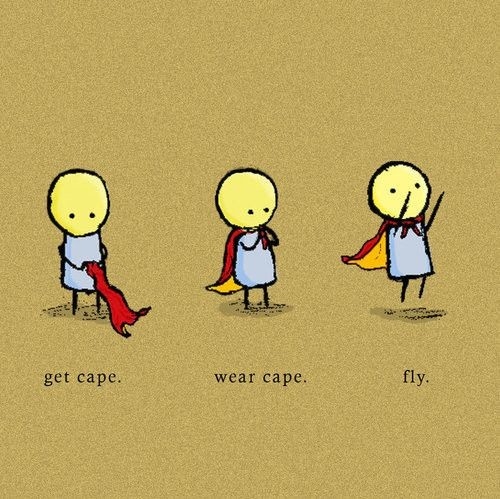I was reading something posted to Facebook this morning (Charisma Magazine Online Article - Fortune
500 Company: Homeschoolers Need Not Apply) regarding NiSource,
an Indiana energy distribution company, having decided to commit to not hiring
homeschoolers.
As I read the article, an interesting point
was made with regards to Common Core in it which a high school friend of mine
who is now a teacher herself commented on, explaining that she doesn't see the
problem with Common Core, and that homeschoolers shouldn't have any trouble
meeting the minimum standards which Common Core lays out. She also asked what
home schooling standards are and provided a link to the Common Core website, I
presume for the purpose of allowing me to familiarize myself with details about
it which are not negative or critical. See below the response I wrote to her:
__________________________________________________
That's the thing. "Home schooling standards" aren't a
universal, one-size-fits-all, across the board monolith that anyone can point
to and make broad assumptions about. And I can see how that might be argued
against by some as being a significant downside to home education, but as I and
many others see it, the decentralized nature of home education
is a great deal of the beauty and the strength of it.
I honestly am not intimately familiar with Common Core, but I have read
articles and heard radio programs that gave specific examples of parents being
arrested at parent-teacher conferences for asking questions, voicing their
concerns, or for taking umbrage at specific homework or reading assignments,
textbook lessons, how certain specifics of the standards were chosen, how their
child's progress will be measured and tracked and what it will be used for,
etc. When I see parents being arrested for questioning or disagreeing with Common Core, that right there tells me all I feel I need to know to be opposed to the thing.
Don't misunderstand me. I can imagine scenarios in which a parent threatening violence would
be justifiably removed from a public event by law enforcement. But the numerous videos I've seen on the internet of
parents being arrested at parent-teacher conferences related to Common Core didn't show any indication of those parents having been violent or threatening,
unreasonable, etc. Those videos I've seen show parents being punished,
humiliated, and intimidated for earnestly attempting to have a say about how
their children are being educated. Parents across the country are being treated
in a way that implies that it's their job to shut up and salute, and that any
inconvenient assertion of their rights which might interfere with the roll-out
of this Common Core scheme is not to be tolerated.
From what I've seen in those videos, we all need to be deeply concerned
about how intrusive, controlling, domineering, and tyrannical our government
has become and continues to become.
My children do not belong to the state. My sons and daughter are not
merely being babysat by Lauren and I while we wait for them to mature into
adulthood when they can quietly, submissively join in building the
economy.
Children are primarily their parents' responsibility, not the
government's, and I reject the notion that someone who has attended formal training
and indoctrination in how to shepherd a class of dozens of children toward a State dictated end-goal is inherently superior to myself or my wife in their
appreciation of my child's intellectual, emotional, spiritual, or physical
needs. Forgive me, but I don't see why I should assume that they will inevitably do a superior job of teaching my children
reading, math, science, history, etc.
Quite the contrary, I feel confident that the statistics in
the U.S. support my assertion that homeschooling parents are either
outperforming the professional teachers in the public schools in their ability
to educate their students. That, or else the professional training and structure is a
moot point.
Home educated students, on average, consistently and significantly
outperform their public school peers in every academic measure, in study after
study after study. I would even dare say that quite often the social
intelligence of homeschoolers is also superior to that of their public school
peers. Yes, public schoolers have a lot more practice interacting with their own age group, but homeschoolers are getting individual one-on-one attention for much more of the day than one child in a sea of public education could hope to, and the ability to carry on an adult conversation is a side-effect of this.
It is my sincerely held view that homeschoolers are receiving a superior
education experience to their public school peers, not merely with regards to the academic subjects they
study, but this "socialization" which we are told is the primary downside
of home schooling is, as far as I'm concerned, actually another advantage which
homeschoolers have more-so, relatively speaking, to the kids in public schools.
For instance, how often do you hear about homeschooled children shooting up their classmates and teachers? So when someone asks me what the problem with Common Core is, I feel confident in my skepticism.
For instance, how often do you hear about homeschooled children shooting up their classmates and teachers? So when someone asks me what the problem with Common Core is, I feel confident in my skepticism.
The troubling thing about Common Core is not so much the specifics of the standards themselves, which, as I've already said, I'm not an expert on. Rather, the philosophical and ideological basis on which those standards were developed, and on which they have been and will be implemented - that's what I take issue with.
As is the case in almost every conceivable aspect of our lives as Americans today, the government increasingly gives us the fig leaf of saying that we own the details of our lives, that we are "free", while at the same time adding innumerable and repressive regulations which more profoundly and more convincingly and constantly demonstrate that they see themselves as more ultimately the owners of those details, since they presume the right to dictate, specify, and ultimately control them.
"The hand that rocks the cradle is the
hand that rules the world," as the famous
William Ross Wallace poem tells us, and for the life of me I can't see why we should entrust the job of rocking our
children's cradles to the State. Can you?
Unfortunately, our government is demonstrating daily that an
ever-increasing, seemingly endless number and variety of measures and efforts
designed to restrict, coerce, and manipulate us all today is not sufficient for
them. They want to have complete and unfettered control tomorrow also, over
what and how the next generation will think. By having dictated all of education, they will then have even more complete control of that coming
generation than they have over this one, or were able to over the previous.
I find that to be a very troubling and unsuitable circumstance, one
which I feel we must navigate with great care, and which we must not allow to be
cemented into place.
That said, as far as Common Core does or does not currently relate to
the hiring decisions which NiSource made with regards to homeschoolers (which I realize was what the article I linked to at the top of this post was discussing, having gotten somewhat, but not really, off-topic), I think it's worth me saying that we need
to not be so limited in our evaluations of these things - Common Core, immigration policy, the right to privacy, religious liberty, etc. - that we only consider what is currently
obvious and direct about what's being implemented or proposed.
To the contrary, we must, when evaluating these developments in society - in education, the economy, foreign affairs, civil liberties, religious liberty, etc. - weigh and consider the potential future implications for precedents carelessly set now, and how these implications might be combined in the future to produce awful and regrettable outcomes for us and our descendants.
I am concerned that, in these things, chains and shackles and prison bars have been and are being constructed which will entrap us and our families and our fellow citizens, which will limit our freedoms and our liberty, and which will increasingly make us more and more the slaves which we look back on history with condescension and are appalled by the condition of.
To the contrary, we must, when evaluating these developments in society - in education, the economy, foreign affairs, civil liberties, religious liberty, etc. - weigh and consider the potential future implications for precedents carelessly set now, and how these implications might be combined in the future to produce awful and regrettable outcomes for us and our descendants.
I am concerned that, in these things, chains and shackles and prison bars have been and are being constructed which will entrap us and our families and our fellow citizens, which will limit our freedoms and our liberty, and which will increasingly make us more and more the slaves which we look back on history with condescension and are appalled by the condition of.
A single bar does not a prison make, but a prison isn't made in a day
either. It takes time, is planned out and built piece by piece over time. Our
government now, I am sincerely and wholeheartedly convinced, is willing to
accept collateral damage in the pursuit of a Utopian vision for the future. And if that means destroying some things, some people getting hurt, or severely restricting those who might oppose them, they will regulate, manipulate, lie to, and in all ways oppose and castigate and vilify those who are not helping them to achieve their vision for a Utopian future.
I, for one, would rather maintain and advocate liberty and independence
for myself and my family than accept these measures which are being imposed upon us in America.
For instance, I'd like to keep more of my tax money in my own pocket, to
be spent as I see fit, instead of paying it to our government so it can be used
to fund foreign armies in Syria and Iraq and Afghanistan.
...Or abortion clinics and public schools here in the U.S., where if our children are not murdered as infants, they are misled and neglected and set adrift intellectually and spiritually.
...Or an internal revenue service here which has been shown to officially punish American citizens who held political positions which were deemed inconvenient to the current administration's efforts and agenda.
...Or an NSA which is conducting a massive spying operation on American citizens, treating us all as if we are guilty until proven innocent, where it is more true than ever before that "anything you say can and will be used against you in a court of law."
...Or the militarized police forces which aggressively conduct no-knock raids with the most trivial and tenuous of justification, injuring innocent men, women, and children, and causing Americans to feel that they are no longer really free in their own nation.
...Or lavish (and frequent) vacations taken by our President and his family to all corners of the globe.
...Or abortion clinics and public schools here in the U.S., where if our children are not murdered as infants, they are misled and neglected and set adrift intellectually and spiritually.
...Or an internal revenue service here which has been shown to officially punish American citizens who held political positions which were deemed inconvenient to the current administration's efforts and agenda.
...Or an NSA which is conducting a massive spying operation on American citizens, treating us all as if we are guilty until proven innocent, where it is more true than ever before that "anything you say can and will be used against you in a court of law."
...Or the militarized police forces which aggressively conduct no-knock raids with the most trivial and tenuous of justification, injuring innocent men, women, and children, and causing Americans to feel that they are no longer really free in their own nation.
...Or lavish (and frequent) vacations taken by our President and his family to all corners of the globe.
Instead of paying for those things with my tax money, I'd
rather spend the money I've earned as a free man would, making independent
determinations according to his conscience, values, beliefs, and goals.
I'd rather spend my own money, for instance, on educational
opportunities and resources which I feel and am convinced and have good reason
to believe are actually and directly beneficial to my children and our family.
By contrast, I'd rather not helplessly and dumbly and meekly give my money over
to our government to make all these determinations for me and my children as to
what is best for us.
Where is $500 of my money better spent? On taxes that pay administrative
fees for implementing a top-down, one-size-fits-all, dictatorial approach to
education like Common Core? Or in taking my family on a trip to Yellowstone
National Park?
Where is $8 of my money better spent, on taxes that pay for the coffee and creamer for the teachers' lounge at the local public school, or on a subscription to Netflix where I can select educational titles for my children to watch which help supplement their coursework and enrich their understanding of the subject matter?
Where is $8 of my money better spent, on taxes that pay for the coffee and creamer for the teachers' lounge at the local public school, or on a subscription to Netflix where I can select educational titles for my children to watch which help supplement their coursework and enrich their understanding of the subject matter?
The problem with Common Core is not merely what it is, but more
importantly what it isn't. What it isn't is my wife and I making decisions
about how to educate our children, taking responsibility for the little people God
gave us to parent and raise, and being good stewards of their hearts and minds, educating them to
live happy, healthy, and holy lives in service to Him.
And beyond that, I have zero confidence in the American
government to do the moral, godly, or honest thing with regards to things which
only indirectly affect my family and I. So why in God's name would I entrust them directly
with my children, to do what's best for them? Why would I place my children in
their hands, or allow them to suggest that my role is only secondary and
coincidental?
No, when it comes to the public schools, I don't experience a surplus of confidence. It's obvious that something is profoundly and deeply broken there when I hear about school
shootings, explicit and immoral sex-ed classes, fervent and aggressive secularization, suspensions over pop tarts being
eaten into the shape of guns, bullying that drives children to commit suicide, godlessness, the advocacy and
normalization of sexual immorality and abortion, scandals involving teachers
having sex with their students, the teaching of Darwinian origins which tells
children that we as a species originated from lower life forms over millions
upon millions of years of death and dying and randomness, and that God may have
been involved somehow if we want to believe that, but that the Bible is
essentially a lie, unreliable and superstitious, inconvenient nonsense.
These things are rampant and, at least as it seems to me from my vantage point looking in from the outside, inherent to the philosophy and methodology under which the public education system is administrated. So, no, I don't trust our government to establish good and healthy and wise
standards in Common Core which I would want to subject my children to. Look
at what they've accomplished so far with the education system, and how can you be inspired to trust to their future efforts?
The proponents of Common Core and government dictated
education systems may say that they have thus far not succeeded because they
had not enough power and control before, but I am convinced that they had
rather too much power and control, and that they should have less of both
rather than more.










